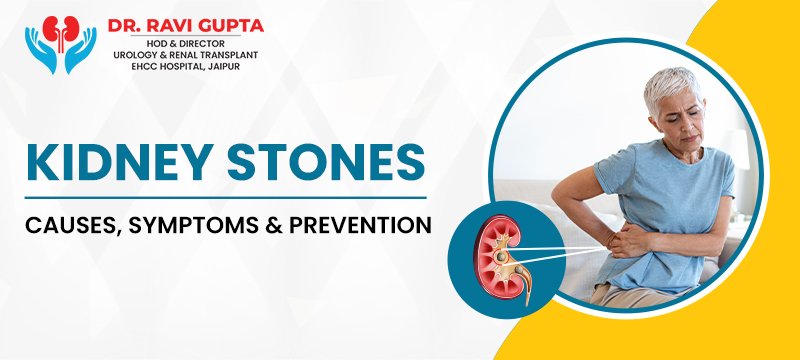
Kidney Stones: Causes, Symptoms & Prevention
Kidney stones are hard deposits in the kidneys when there is a buildup of certain substances in your urine. These substances can form crystals, which then develop into stones over time. stones can vary in size and shape, with some being as small as a grain of sand and others as large as a golf ball.
How are Kidney Stones Formed?
when there is an imbalance in the substances that make up urine. The most common types of kidney stones are calcium stones, which are formed when calcium combines with oxalate or phosphate in the urine. Other types of kidney stones include uric acid stones, struvite stones, and cystine stones.
Unfortunately, quite common, affecting about 1 in 10 people at some point in their lives.
Major Causes of Kidney Stones
Dehydration: Not drinking enough water can lead to concentrated urine, which increases the risk of kidney stone formation.
Diet: Consuming foods high in oxalate, sodium, or sugar can contribute to the development of kidney stones.
Genetics: A family history of kidney stones can increase your likelihood of experiencing them.
Medical conditions: Certain medical conditions such as gout, hyperparathyroidism, and urinary tract infections can also play a role in kidney stone formation.
Signs & Symptoms
* Severe pain in the back, side, or lower abdomen
* Nausea and vomiting
* Blood in the urine
* Frequent urination
* Painful urination
> If you experience any of these symptoms, it’s essential to seek medical attention from an Expert Urologist to confirm the presence of stones and determine the best course of action.
Best Practices to Prevent Stones of Kidney
* Stay hydrated by drinking plenty of water throughout the day.
* Follow a balanced diet low in salt and high in fruits and vegetables.
* Limit consumption of foods high in oxalate, such as spinach, nuts, and chocolate.
* Maintain a healthy weight through regular exercise and proper nutrition.
* Seek medical advice from the best urologist in Jaipur if you have a family history or underlying medical conditions.
Conclusion
kidney stones can be a painful and uncomfortable experience, but with the right knowledge, preventive measures,s and expert guidance of laser kidney stone treatment expert their occurrence can be significantly reduced. By staying hydrated, maintaining a healthy diet, and being aware of your risk factors, you can take proactive steps toward preventing and promoting overall kidney health. Remember, your kidneys play a vital role in keeping your body functioning optimally, so it’s crucial to take care of them.